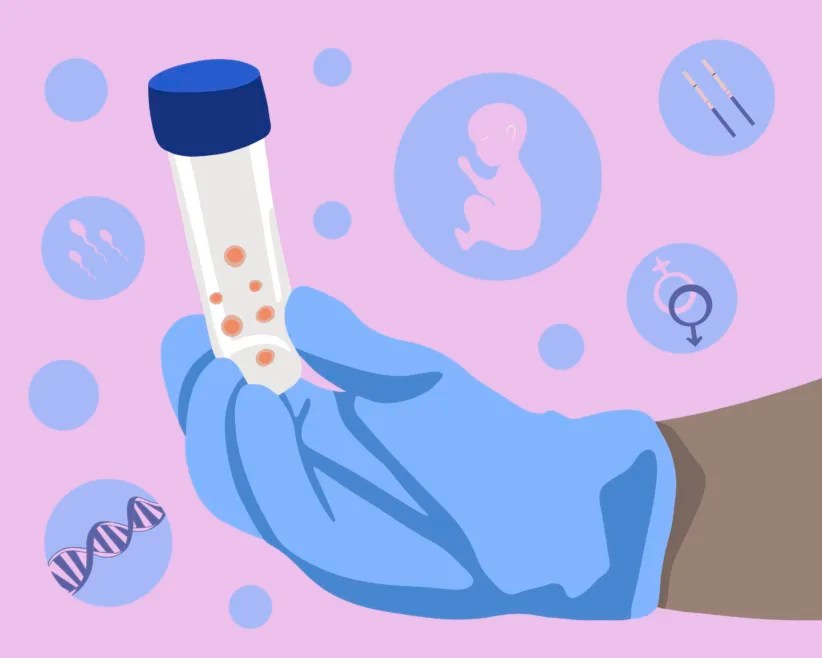Secondary infertility — the inability to conceive after already biologically giving birth to a child — is on the rise. According to the Centers for Disease Control and Prevention, about four million couples in the United States experienced secondary infertility in 2010 — up from 3.3 million couples in 2006. Secondary infertility is a devastating shock for many couples who had planned to have multiple children in their family.
When treating secondary infertility — as opposed to treating primary fertility, doctors look for things that have changed since the first pregnancy. Inevitably, the one thing that has changed for all couples is age.
“The woman’s age is the biggest factor to determining whether a woman’s pregnancy will be successful or not,” said Dr. Isaac Sasson, an expert in reproductive endocrinology and infertility at the Shady Grove Fertility Center in Maryland.
The quality of the female’s eggs are a large factor in determining whether or not the woman will get pregnant, and as a woman ages, the quality of her eggs decline. By the time she is pushing 40, her chances of conceiving have drastically decreased. Similarly, the quality of the male’s sperm also declines around the age of 40, but more gradually.
Why has age become such an issue? Dr. Lisa Kolp, from Johns Hopkins Medical Center, and an expert in female infertility, says that because divorce rates are rising (around 40 percent according to the Centers for Disease Control and Prevention), and many women are trying to have kids with their second partner at an older age.
Furthermore, the fault may lie with the second partner — oftentimes when people switch partners, they find that they are unable to conceive.
Clue to health problems
Aside from age, said Dr. Morgan Rau, a naturopathic doctor from Maine Family Natural Health who specializes in women’s health and childbirth, infertility is often an indicator of deeper health issues.
“The body is not healthy enough to welcome a baby,” Dr. Rau said.
Some of the most common reasons for female infertility include diabetes, thyroid dysfunction, endometriosis, and polycystic ovarian syndrome. Dr. Rau says that many of the female conditions are caused by an imbalance of the hormones (usually an excess of estrogen). Often, treating those issues first is extremely effective in raising chances of pregnancy.
“Lifestyle issues, thyroid dysfunction, and diabetes can be the first identifiable cause for infertility,” Dr. Sasson said. His office, like many fertility centers across the country, employs a step-wise approach — first the doctor does a comprehensive check of both partners’ health histories. This may include everything from excessive alcohol consumption to sexually transmitted diseases.
Male infertility
However, contrary to popular opinion, infertility is not always due to the woman’s infertility. Doctors estimate that 70 percent of the time, the infertility is due to a female cause, 50 percent of the time the infertility is due to a male cause, and 20 percent of the time, it is a combination of both male and female causes.
Dr. Pravin Rao, a specialist at Johns Hopkins specializing in male infertility, says that the most common cause for male infertility is a condition called varicocele. This condition is an enlargement of the veins in the scrotum, which may cause low sperm count or low sperm quality. Treatment for varicocele involves a micro-surgery called varicocele ligation, said Dr. Rao.
Other factors for male infertility may include hormone function, excessive consumption of alcohol, or chemotherapy. The popularity of recent testosterone-enhancing supplements often hinders conception as well. A study conducted by the University of Alabama in May of this year, and presented to the American Urological Association, found that the testosterone-enhancing supplements turn off sperm production, and it generally takes six months for the man’s sperm count to return to normal after he has gone off the supplement.
Sometimes though, the cause of male infertility may simply be a case of running the bath too hot, since the testes is usually 3 degrees cooler than the rest of the body, and overheating the area may cause sperm to die.
“It’s often surprising how small adjustments can make a difference,” Dr. Rao said.
However, Dr. Rao also indicated that, just like for women, male infertility may be a sign of underlying health issues, and thus it is important for the couples’ well-being to be evaluated thoroughly.
Reproductive technology
“Infertility often points to higher rates of testicular cancer and prostate cancer,” he said. Doctors across the board agree that good health is the ultimate solution to infertility. Procedures such as in vitro fertilization, while faster and sometimes more effective, are extremely invasive and costly, said Dr. Sasson.
Other assisted reproductive technology includes surrogacy or artificial insemination. There are risks to these technologies however: a study completed by the American Society for Reproductive Medicine found that children conceived through in vitro fertilization were more likely to be born with birth defects.
“There are risks, costs, and success,” said Dr. Sasson. “As a medical professional, I make a recommendation based on these three factors. It’s important to make an informed decision.”
Jenny Chen is a freelance writer specializing in education and parenting. She has written for Washington Parent and Mothering Magazine. More work can be found at www.jennyjchen.com and on Twitter @americanhaiku.
Resources:
Resolve: The National Infertility Association (with local chapters), resolve.org





















